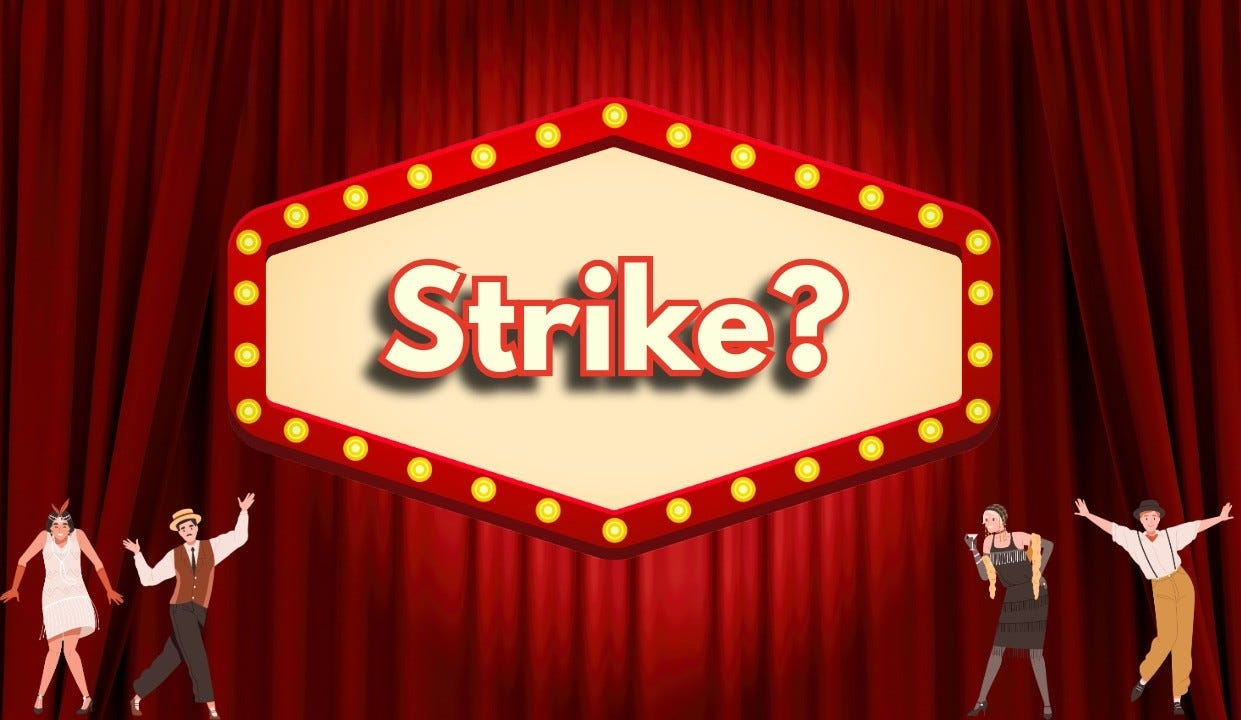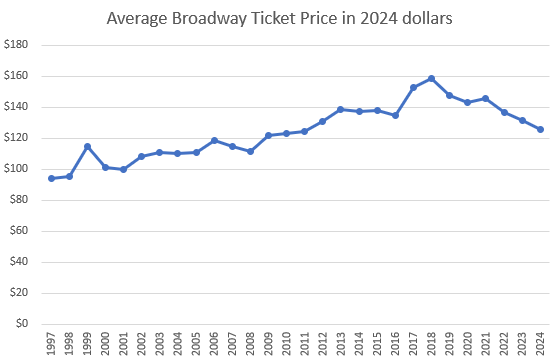Implications of a Potential Broadway Strike
Everyone wants more. The problem? There’s less to go around
The Actor’s Equity Association, the union that represents Broadway actors, is considering a strike. The American Federation of Musicians are also considering one. Either of these would have a massive impact on Broadway shows, shutting most down.
I was contacted by NPR’s Marketplace for comments, and they ran this story. Please listen to the whole thing, but my part:
And not every show can raise ticket prices to cover higher costs due to inflation, said Matthew Rousu, dean of the School of Business at Susquehanna University (and a big time Broadway fan.)
Bottom line?
“There’s just simply less money to split between the groups, and that is probably why we’re seeing the threat of a strike. When there’s less to split, it’s much tougher to come to an agreement,” he said.
Four other observations about Broadway and a potential strike
1. Broadway musicals are losing a lot of money.
The only new shows that seem to have truly thrived recently are those with superstars like Jonathan Groff (Just In Time), Denzel Washington (Othello), and George Clooney (Good Night and Good Luck). A recent New York Times article shared that “Looking further back, 46 new musicals have opened since the pandemic … and only three are in the black”.
This is bad news for Broadway. And why are all these shows losing money? For that, we go to observation #2.
2. Broadway ticket prices are (way) down after adjusting for inflation from 2018
This is from of a previous post (go there for more), but prices in today’s dollars were about $160 in 2018, well above current prices. Lower ticket prices combined with costs going up is a painful combination.
3. A strike of any significant length will likely cause some shows to permanently close
Many current shows are selling well below capacity and (or) are seeing lower average ticket prices, resulting in weekly revenue of far under $1 million weekly. See current Broadway grosses for details. With a strike, some of these shows that are struggling would likely close.
4. There are tradeoffs between the compensation per actor and the number of actors employed
This is basic economics. The law of demand says that the higher the price is for something, the less people buy and it holds for labor markets. Therefore, if the compensation for workers on Broadway increases that means the quantity of workers employed would drop. We could see fewer shows come to Broadway.
Something else that would like happen: Smaller casts. There has been a trend of smaller casts in Broadway shows and as more compensation needed per worker, shows will try to make things run with fewer workers. (Whether actors, orchestra members, or others who help run a show.)




